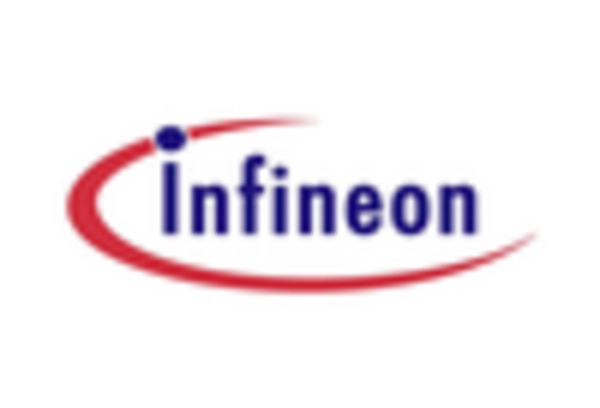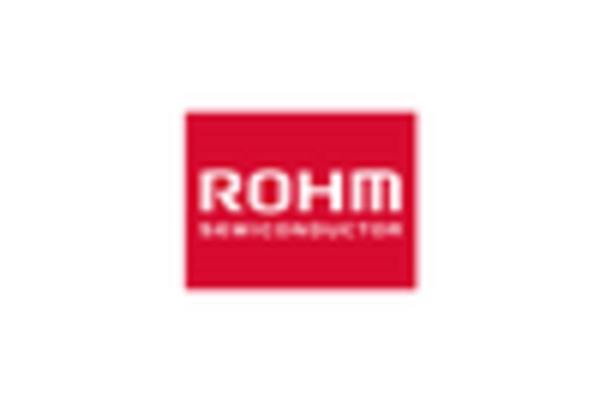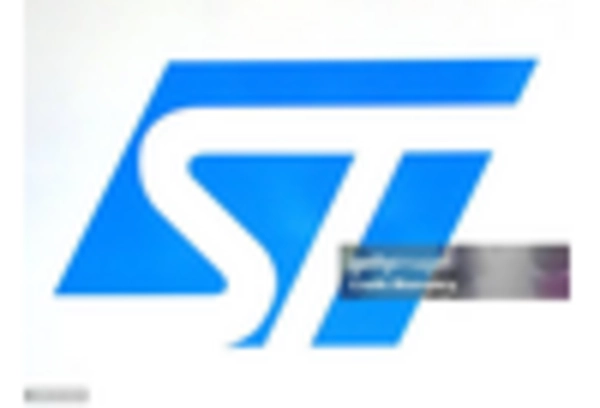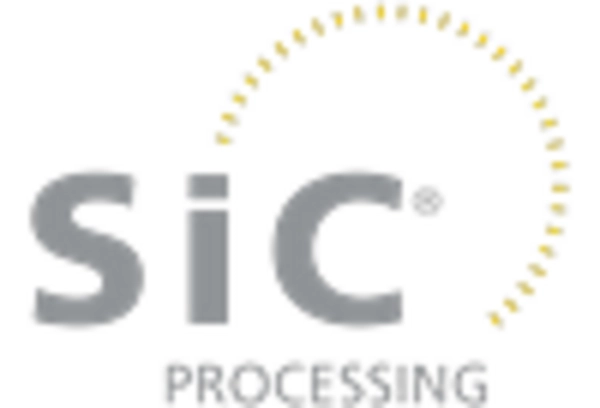The competitive dynamics within the silicon carbide market in Japan are characterized by a blend of innovation, strategic partnerships, and regional expansion. Key growth drivers include the increasing demand for high-performance semiconductors in electric vehicles (EVs), renewable energy systems, and advanced electronics. Major players such as ROHM Co Ltd (Japan), Cree Inc (US), and Infineon Technologies AG (DE) are actively shaping the landscape through their distinct operational focuses. ROHM Co Ltd (Japan) emphasizes innovation in power devices, while Cree Inc (US) is known for its advancements in wide-bandgap semiconductors. Infineon Technologies AG (DE) is strategically positioned through its focus on automotive applications, which collectively influences the competitive environment by fostering a culture of technological advancement and collaboration.Key business tactics in this market include localizing manufacturing and optimizing supply chains to enhance efficiency and reduce costs. The competitive structure appears moderately fragmented, with several players vying for market share. However, the collective influence of key players like STMicroelectronics NV (FR) and Mitsubishi Electric Corporation (JP) suggests a trend towards consolidation, as companies seek to leverage synergies and enhance their market presence.
In October ROHM Co Ltd (Japan) announced the opening of a new manufacturing facility dedicated to silicon carbide wafers, which is expected to double its production capacity. This strategic move is significant as it aligns with the growing demand for high-performance power devices, particularly in the EV sector, thereby positioning ROHM as a key supplier in this rapidly evolving market.
In September Cree Inc (US) unveiled its latest silicon carbide power module designed for industrial applications, which reportedly improves efficiency by 20% compared to previous models. This innovation not only enhances Cree's product portfolio but also reinforces its commitment to sustainability and energy efficiency, which are increasingly critical factors for customers in the semiconductor space.
In August Infineon Technologies AG (DE) entered into a strategic partnership with a leading Japanese automotive manufacturer to develop next-generation silicon carbide solutions for electric vehicles. This collaboration is poised to accelerate the adoption of silicon carbide technology in the automotive sector, reflecting a broader trend of integrating advanced materials into vehicle design for improved performance and reduced emissions.
As of November current trends in the silicon carbide market are heavily influenced by digitalization, sustainability, and the integration of artificial intelligence (AI) in manufacturing processes. Strategic alliances are increasingly shaping the competitive landscape, as companies recognize the value of collaboration in driving innovation. The shift from price-based competition to a focus on technological differentiation and supply chain reliability is evident, suggesting that future competitive advantages will hinge on the ability to innovate and adapt to changing market demands.














